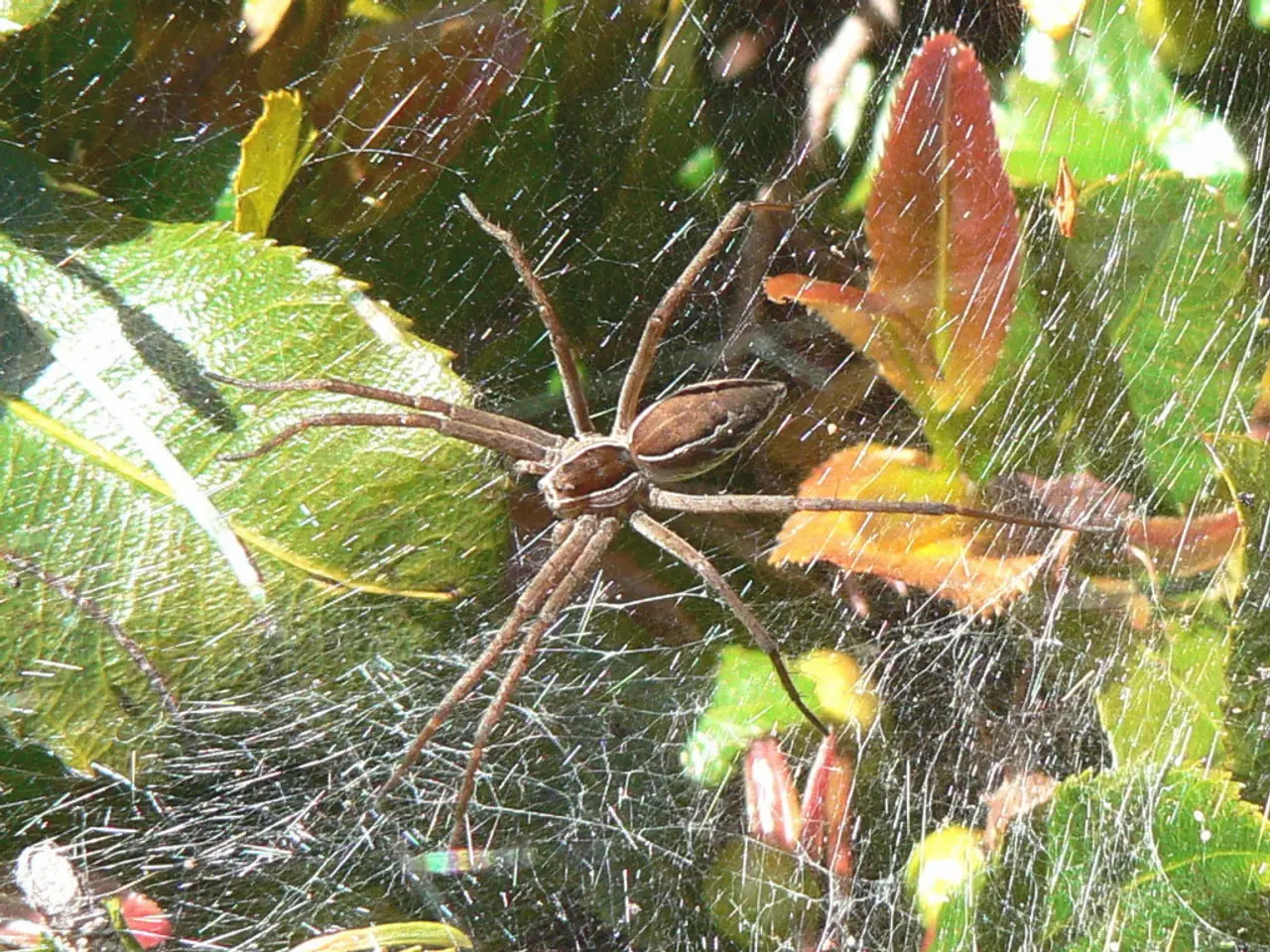Prevent spider infestations in your home during autumn using this unexpected all-natural solution
In the quest to keep unwanted guests at bay, many homeowners turn to natural solutions. One such solution is clove oil, a potent essential oil that acts as a deterrent for spiders.
Regular sweeping in kitchens, basements, and garages can remove cobwebs and debris that could offer spiders shelter. However, for a more proactive approach, clove oil can be employed as a spider deterrent. To effectively use clove oil, dilute about 10 to 15 drops of clove oil in a cup of water and add a few drops of dish soap to help the mixture adhere to surfaces. Use a spray bottle to apply this solution around key spider entry points and hiding spots such as windowsills, door frames, baseboards, vents, attics, behind furniture, and under sinks. Reapply the spray every 3-4 days or after cleaning to maintain its effectiveness, as the scent fades over time.
Clove oil's effectiveness comes from its main compound, eugenol, which disrupts spiders’ sensory receptors and deters them from settling, although it does not kill them outright. For stronger results, clove oil can be combined with other essential oils like peppermint oil, which also confuses spiders’ sense of smell and acts as a natural repellent.
Beyond clove oil application, comprehensive spider pest control integrates additional preventive measures. Draft-proofing your home by sealing cracks and gaps around doors and windows reduces spider entry points. Regular cleaning, including vacuuming spider webs and egg sacs, stops spider population buildup. Using spider traps can help capture and reduce numbers actively present inside. Other natural repellents, such as citrus oils (lemon, orange), eucalyptus, or chestnuts, can create an unfavorable environment for spiders. Decluttering storage areas and removing cardboard and paper piles reduces their preferred habitats indoors.
Together, this integrated approach—regularly applying a diluted clove oil spray, sealing entryways, maintaining cleanliness, and using traps—provides a more reliable and sustained spider deterrence strategy for your home. It's essential to remember that clove oil is an all-natural scent deterrent for spiders, but it may not always keep them out of the garage or get rid of spiders in a basement.
While clove oil can be an effective deterrent for spiders, it is more of a nuisance for spiders than a danger sign. High concentrations of eugenol have shown mild repellency against some spider species in lab conditions. However, it's crucial to note that studies suggest that clove oil is also an effective scent deterrent for arthropod pests (such as ticks), armyworms, thrips, aphids, and mites.
For those seeking additional solutions, products like the Zevo Multi Insect Killer can kill ants, roaches, flies, fruit flies, gnats, spiders, and crickets on contact. Dawn Powerwash, with a fresh lemon scent and concentrated soap formula, is effective for cleaning areas where spiders live. Sponge cloths can help reduce odors and mildew that could attract flies and, therefore, spiders, in your home.
In conclusion, employing a combination of natural deterrents and preventive measures offers a sustainable and effective approach to keeping spiders at bay. Consulting experts like Mihail Velev, who specializes in comprehensive rodent and insect treatments at Fantastic Pest Control, or Nicole Carpenter, the CEO of Black Pest Prevention, can provide valuable insights and guidance in creating a customised spider control strategy for your home. And remember, avoiding squashing spiders can prevent more spiders from being attracted to your home due to the released pheromones.
Maintaining a clean home-and-garden improves the overall lifestyle by reducing the space for spiders to live. Besides diluted clove oil spray, other natural repellents such as citrus oils, eucalyptus, or chestnuts can create an unfavorable environment for spiders.
For a comprehensive spider pest control, it's essential to integrate decluttering and draft-proofing your home, along with regular cleaning and using spider traps, to provide a sustained and reliable spider deterrence strategy.






